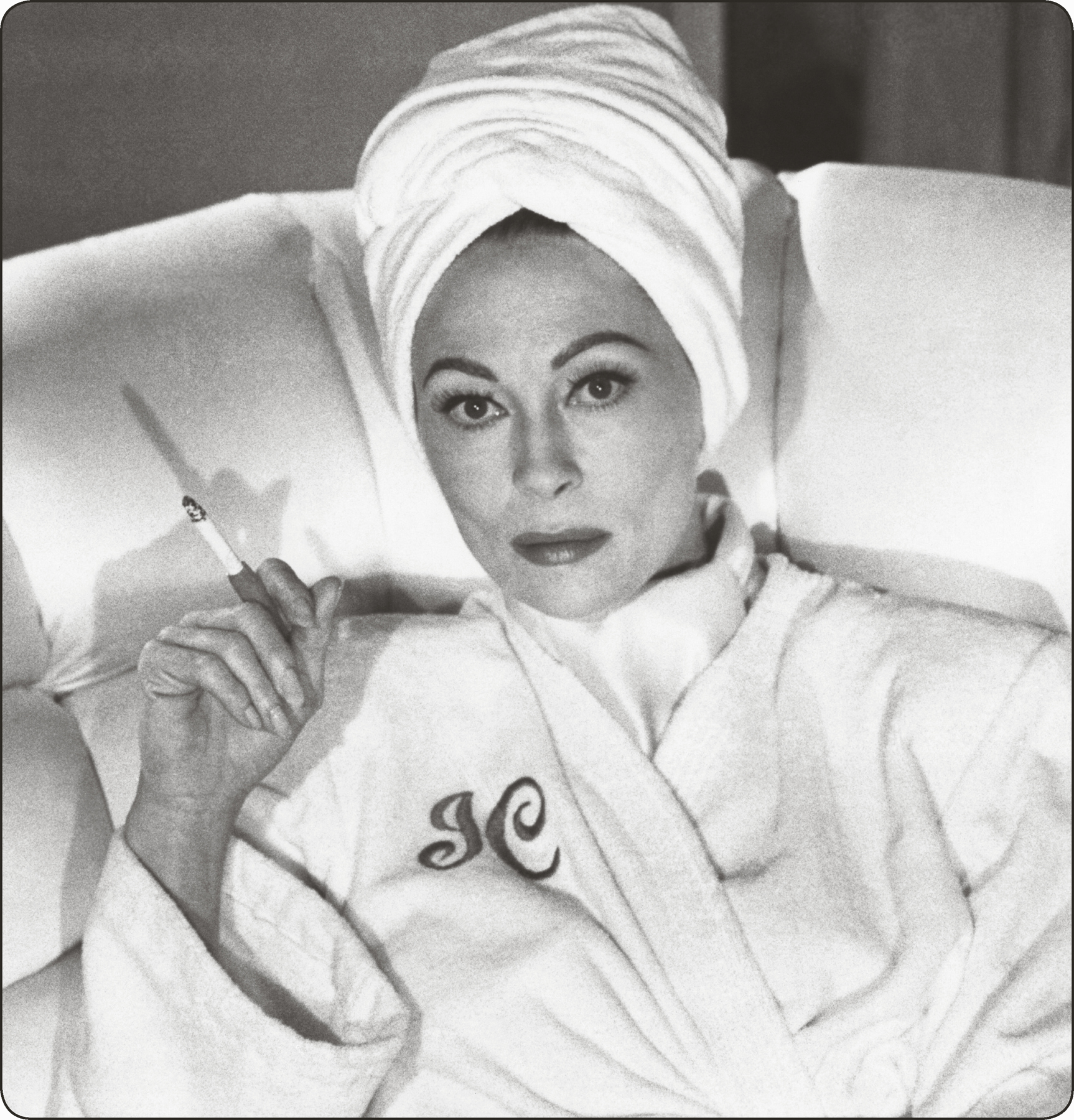
MOMMIE DEAREST 1981
 50%
50%
Directed by Frank Perry
Written by Frank Yablans, Frank Perry, Tracy Hotchner, Robert Getchell
Starring Faye Dunaway and Diana Scarwid
Synopsis
Based on her daughter Christina’s scathing autobiography about her childhood, Mommie Dearest’s Joan Crawford is portrayed as a complete monster whose career begins to decline despite her fighting tooth and nail.
Why We Love It
The essence of Faye Dunaway’s unparalleled performance as Joan Crawford is perhaps best captured by one of the costumes she wears: a terry cloth bathrobe. Not to be confused with any nondescript, forgettable toweling agent, it is tailored to perfection and features shoulder pads of the kind usually found in only the fiercest awards-season gowns. Like the actress wearing it, it’s a lot. And it hints at the camp joys to be found in Mommie Dearest.
When Dunaway’s Joan casually ties this robe around herself, she’s busy telling her young daughter that she’s never going to be a good enough swimmer to beat her mother in a race. According to the memoir the movie was based on, it’s just another Sunday with Joan.
Critics at the time wanted more than just vignettes from these terrifying Sundays (and Mondays through Saturdays) with Joan. They wanted conventional moviegoing pleasures like tight plotting and thoughtful dialogue. Time’s Richard Schickel dismissed the movie as a “collection of screechy scenes.” He wrote that: “Confronted by a movie without narrative tension or human interest, one is finally reduced to watching the paint dry—on Dunaway’s face.”
But what a face to watch it dry on. Dunaway’s villainy in this movie is unique, bold, and unforgettable—which is why the film has endured as a cult classic, with devoted followers who watch it with eyes as wide as Dunaway’s as she rages over those wire hangers. She’s a classic and memorable monster, whether or not the portrayal is accurate. Diana Scarwid, as Christina, brings a measured rage against her over-the-top movie mom that provides the movie’s only balance. Otherwise, it’s all about watching Dunaway lose her marbles over improperly cleaned floors or her kid playing with her makeup.
While the narrative fails to portray Crawford as anything but a one-dimensional crazy-pants actress, the scenes director Frank Perry constructs to illustrate that characterization are the reason to tune in. If you pitted Mommie Dearest’s Crawford against any of the classic horror movie monsters, we think she’d come out victorious, unscathed, and with her bathrobe not the least bit ruffled.